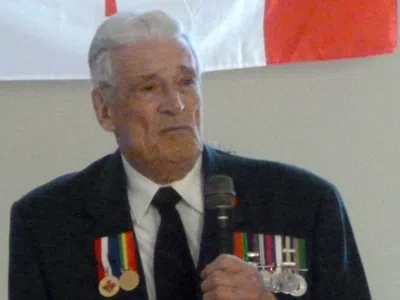
Regina veteran Denis Chisholm’s story lives beyond his death
His ability to play the bugle was his ticket into the Second World War. The fact that Denis Chisholm was only 16 was something the Canadian Army was willing to pretend it didn’t know.
Chisholm was a storyteller who recalled his experiences for students and members of the community. It was important to him that Canadians know what happened.
He passed away with his family by his side on Jan. 3 at the age of 90.
But his story remains.


